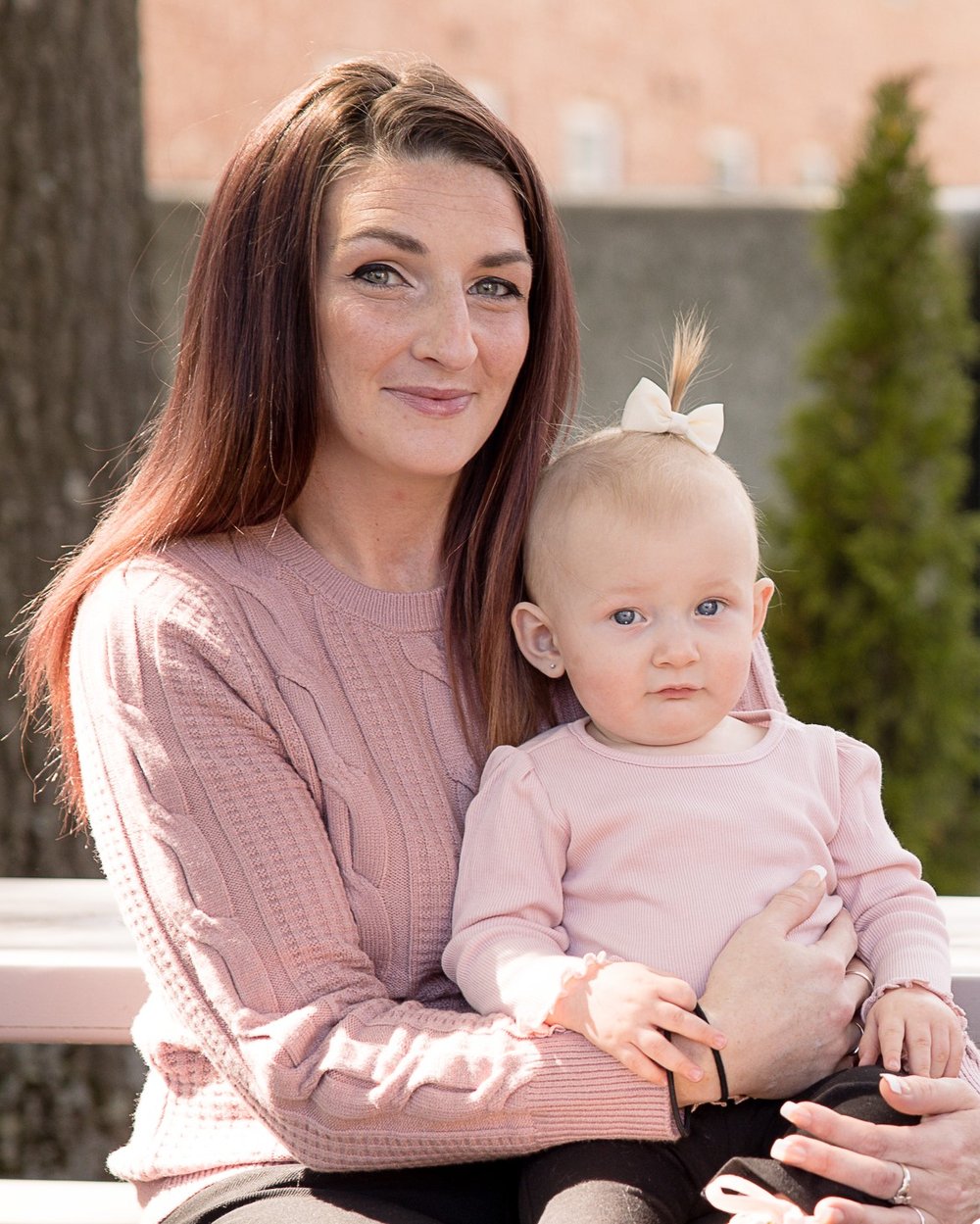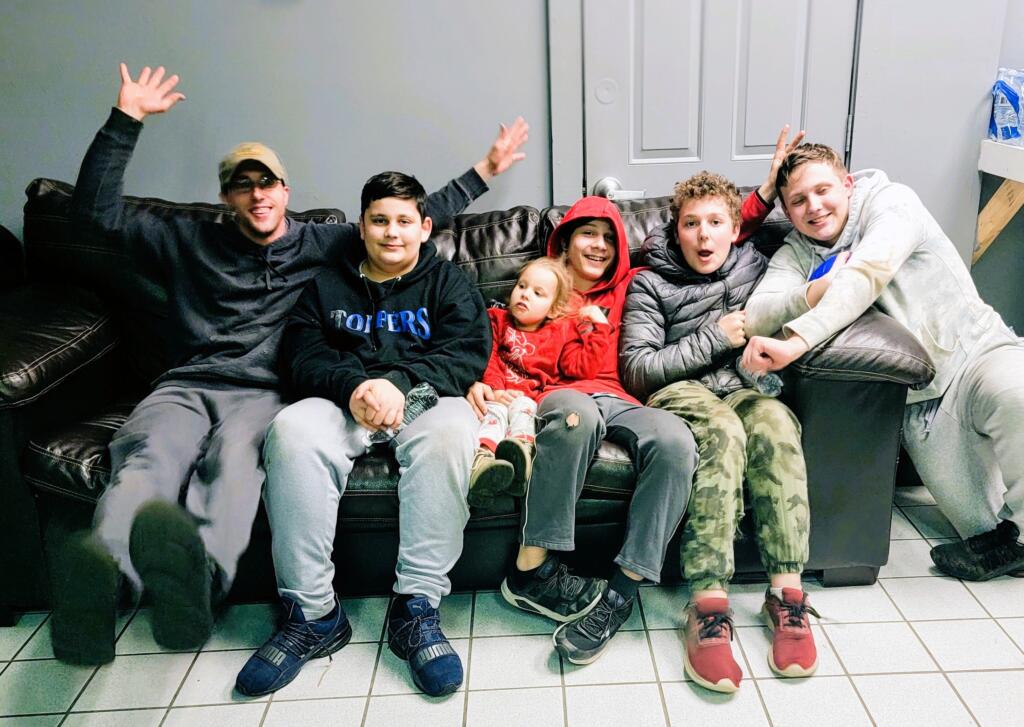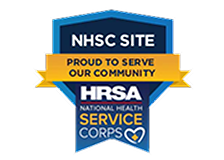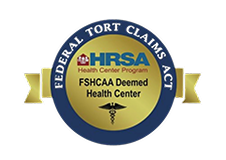A tent was not where Michelle wanted to raise her daughter

Michelle lay on the ground of a stranger’s tent. She was sick, weak, and unable to move. Michelle had suffered a relapse in her struggle with substance use and hit her rock bottom. She was homeless and had to resort to tent surfing. “I lost everything,” she recalls. “No one wanted me around.” She had just found out she was pregnant. As she lay on the ground she thought to herself, “If I’m feeling sick, my baby’s not doing well. I can’t do this anymore.” Despite the intense pain, Michelle found the will to get up.
This pivotal moment – getting up – would change the trajectory of her life.
Michelle slowly walked up a hill and out of the woods to a gas station. She asked a stranger pumping gas for a ride to a local treatment center in Concord. The stranger agreed to help. She was dropped off at the center. However, it was Monday, July 5, a holiday. The center was closed. She ended up staying at a friend’s house that night. The next morning she called Sobriety Centers of NH. They sent an Uber ride and brought her to a detox and treatment center. Because she was pregnant, Michelle was referred to Cynthia Day Family Center, Harbor Care’s inpatient treatment center for pregnant and parenting women.
The day she arrived Michelle recalls feeling “nervous, but also relieved.” Entering treatment and recovery during the height of the COVID pandemic presented additional challenges to an already incredibly stressing experience. She had to quarantine in her room for 10 days. But, Michelle was determined to stick it out. Being pregnant, she knew the stakes were too high, and she did not want to live that life anymore.
Michelle’s use of drugs and alcohol began at age 12. Her parents were separated, and she was given freedom to do what she wanted. Michelle reflects that the lack of structure and discipline led to poor choices that spiraled. “I used just about everything,” Michelle states of her substance use. “It got to a point where I couldn’t stop.”
When she arrived at CDFC, she had almost nothing, except a few pieces of clothing in a bag. The staff took her clothes shopping. She was later provided a stroller and car seat.
During her stay at CDFC, Michelle gave birth to her daughter, Brielle. “It was the best feeling in the world to hold her,” she reflects. After ten months, Michelle had achieved a stable place in her recovery. She and Brielle transitioned out of CDFC and into their own apartment, under the support of Harbor Care staff. Michelle spent seven weeks in Intensive Outpatient Treatment, and continues to participate in weekly recovery groups. She also enrolled in Great Bay Community College with plans to pursue a career in the medical field.
Brielle is Michelle’s biggest influence as she journeys forward. “If I didn’t have her I’m not sure where I’d be. I have no desire to pick up a drug. She doesn’t deserve that. I’m actually living and not just surviving. I feel free.”
This new lease on life and sense of liberation and empowerment has Michelle looking at the future with optimism. The thought of celebrating the upcoming holidays with her daughter fills her with pure joy. “I’m so excited to celebrate the holidays with my daughter. For years they were miserable for me. I feel I have a reason to be happy and to celebrate.”
Recently, Michelle reached a major milestone in her life: one year of sobriety. Yet another reason to rejoice and feel hopeful.






